Stone Tablet Dispute
입력 2019.02.27 (15:47)
수정 2019.02.27 (15:56)
읽어주기 기능은 크롬기반의
브라우저에서만 사용하실 수 있습니다.
[Anchor Lead]
In rural towns in Korea, there are memorial tablets erected that commemorate the achievements of the past town chiefs. A good number of these venerated officials who were appointed during the colonial era are suspected of pro-Japanese activities including exploitation of townspeople.
[Pkg]
A stone tablet is knocked off at one corner of a township office where renovation work is under way. The monument commemorates a local town chief who served during the Japanese colonial period. According to a fact finding report on pro-Japan, anti-Korean activities in the past, this particular official is known to have shot two local residents to death at the time of the March first Independence Movement. Another stone tablet just beside is also believed to be dedicated to a town chief who served for 3 years during the Japanese occupation. Local residents are in a dilemma as to what to do with the two monuments.
[Soundbite] Choi Hyeon-hoi(Deputy chief of Mungwang township in Goesan) : "We thought the officials were meritorious figures who contributed to our town. That's why we kept the monuments at the township office."
A name engraved on the stone was entered into a database operated by the National Institute of Korean History. The search found the person served as town head for five years from the year 1920 which is during the colonial era. Database search of another name found the official assumed the post for 6 years. A considerable number of town chiefs in rural areas who were appointed by the Japanese Government-General of Korea during the colonial era were actively involved in pro-Japan activities such as conscription of labor and plundering of supplies.
[Soundbite] Gwon Gi-yoon(Researcher for Chungcheongbuk-do Prov.) : "Many of those who actively cooperated with Japan in exploitation, conscription and plundering were appointed as town officials."
It's imperative inspections are carried out on similar memorial stones existing nationwide that were erected under Japanese colonization in a bid to clean up Korea's painful past and promote correct understanding of history.
In rural towns in Korea, there are memorial tablets erected that commemorate the achievements of the past town chiefs. A good number of these venerated officials who were appointed during the colonial era are suspected of pro-Japanese activities including exploitation of townspeople.
[Pkg]
A stone tablet is knocked off at one corner of a township office where renovation work is under way. The monument commemorates a local town chief who served during the Japanese colonial period. According to a fact finding report on pro-Japan, anti-Korean activities in the past, this particular official is known to have shot two local residents to death at the time of the March first Independence Movement. Another stone tablet just beside is also believed to be dedicated to a town chief who served for 3 years during the Japanese occupation. Local residents are in a dilemma as to what to do with the two monuments.
[Soundbite] Choi Hyeon-hoi(Deputy chief of Mungwang township in Goesan) : "We thought the officials were meritorious figures who contributed to our town. That's why we kept the monuments at the township office."
A name engraved on the stone was entered into a database operated by the National Institute of Korean History. The search found the person served as town head for five years from the year 1920 which is during the colonial era. Database search of another name found the official assumed the post for 6 years. A considerable number of town chiefs in rural areas who were appointed by the Japanese Government-General of Korea during the colonial era were actively involved in pro-Japan activities such as conscription of labor and plundering of supplies.
[Soundbite] Gwon Gi-yoon(Researcher for Chungcheongbuk-do Prov.) : "Many of those who actively cooperated with Japan in exploitation, conscription and plundering were appointed as town officials."
It's imperative inspections are carried out on similar memorial stones existing nationwide that were erected under Japanese colonization in a bid to clean up Korea's painful past and promote correct understanding of history.
■ 제보하기
▷ 카카오톡 : 'KBS제보' 검색, 채널 추가
▷ 전화 : 02-781-1234, 4444
▷ 이메일 : kbs1234@kbs.co.kr
▷ 유튜브, 네이버, 카카오에서도 KBS뉴스를 구독해주세요!
- Stone Tablet Dispute
-
- 입력 2019-02-27 15:37:42
- 수정2019-02-27 15:56:53
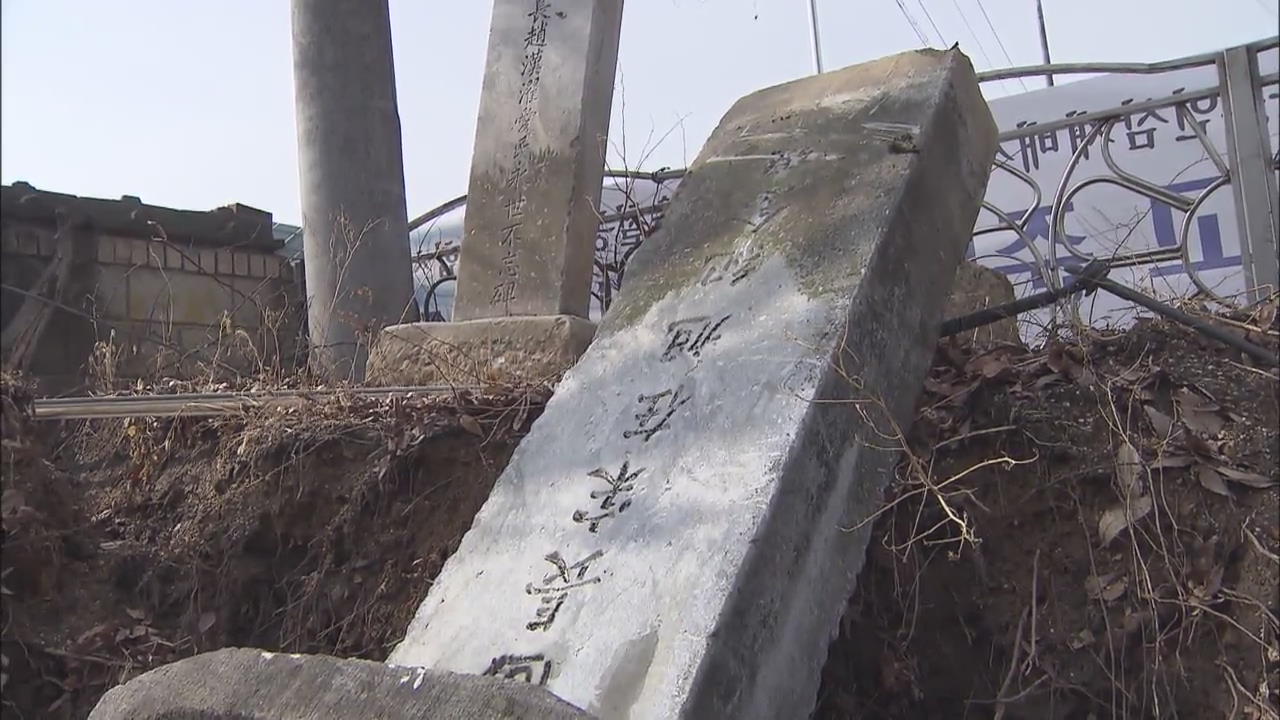
[Anchor Lead]
In rural towns in Korea, there are memorial tablets erected that commemorate the achievements of the past town chiefs. A good number of these venerated officials who were appointed during the colonial era are suspected of pro-Japanese activities including exploitation of townspeople.
[Pkg]
A stone tablet is knocked off at one corner of a township office where renovation work is under way. The monument commemorates a local town chief who served during the Japanese colonial period. According to a fact finding report on pro-Japan, anti-Korean activities in the past, this particular official is known to have shot two local residents to death at the time of the March first Independence Movement. Another stone tablet just beside is also believed to be dedicated to a town chief who served for 3 years during the Japanese occupation. Local residents are in a dilemma as to what to do with the two monuments.
[Soundbite] Choi Hyeon-hoi(Deputy chief of Mungwang township in Goesan) : "We thought the officials were meritorious figures who contributed to our town. That's why we kept the monuments at the township office."
A name engraved on the stone was entered into a database operated by the National Institute of Korean History. The search found the person served as town head for five years from the year 1920 which is during the colonial era. Database search of another name found the official assumed the post for 6 years. A considerable number of town chiefs in rural areas who were appointed by the Japanese Government-General of Korea during the colonial era were actively involved in pro-Japan activities such as conscription of labor and plundering of supplies.
[Soundbite] Gwon Gi-yoon(Researcher for Chungcheongbuk-do Prov.) : "Many of those who actively cooperated with Japan in exploitation, conscription and plundering were appointed as town officials."
It's imperative inspections are carried out on similar memorial stones existing nationwide that were erected under Japanese colonization in a bid to clean up Korea's painful past and promote correct understanding of history.
In rural towns in Korea, there are memorial tablets erected that commemorate the achievements of the past town chiefs. A good number of these venerated officials who were appointed during the colonial era are suspected of pro-Japanese activities including exploitation of townspeople.
[Pkg]
A stone tablet is knocked off at one corner of a township office where renovation work is under way. The monument commemorates a local town chief who served during the Japanese colonial period. According to a fact finding report on pro-Japan, anti-Korean activities in the past, this particular official is known to have shot two local residents to death at the time of the March first Independence Movement. Another stone tablet just beside is also believed to be dedicated to a town chief who served for 3 years during the Japanese occupation. Local residents are in a dilemma as to what to do with the two monuments.
[Soundbite] Choi Hyeon-hoi(Deputy chief of Mungwang township in Goesan) : "We thought the officials were meritorious figures who contributed to our town. That's why we kept the monuments at the township office."
A name engraved on the stone was entered into a database operated by the National Institute of Korean History. The search found the person served as town head for five years from the year 1920 which is during the colonial era. Database search of another name found the official assumed the post for 6 years. A considerable number of town chiefs in rural areas who were appointed by the Japanese Government-General of Korea during the colonial era were actively involved in pro-Japan activities such as conscription of labor and plundering of supplies.
[Soundbite] Gwon Gi-yoon(Researcher for Chungcheongbuk-do Prov.) : "Many of those who actively cooperated with Japan in exploitation, conscription and plundering were appointed as town officials."
It's imperative inspections are carried out on similar memorial stones existing nationwide that were erected under Japanese colonization in a bid to clean up Korea's painful past and promote correct understanding of history.
이 기사가 좋으셨다면
-
좋아요
0
-
응원해요
0
-
후속 원해요
0










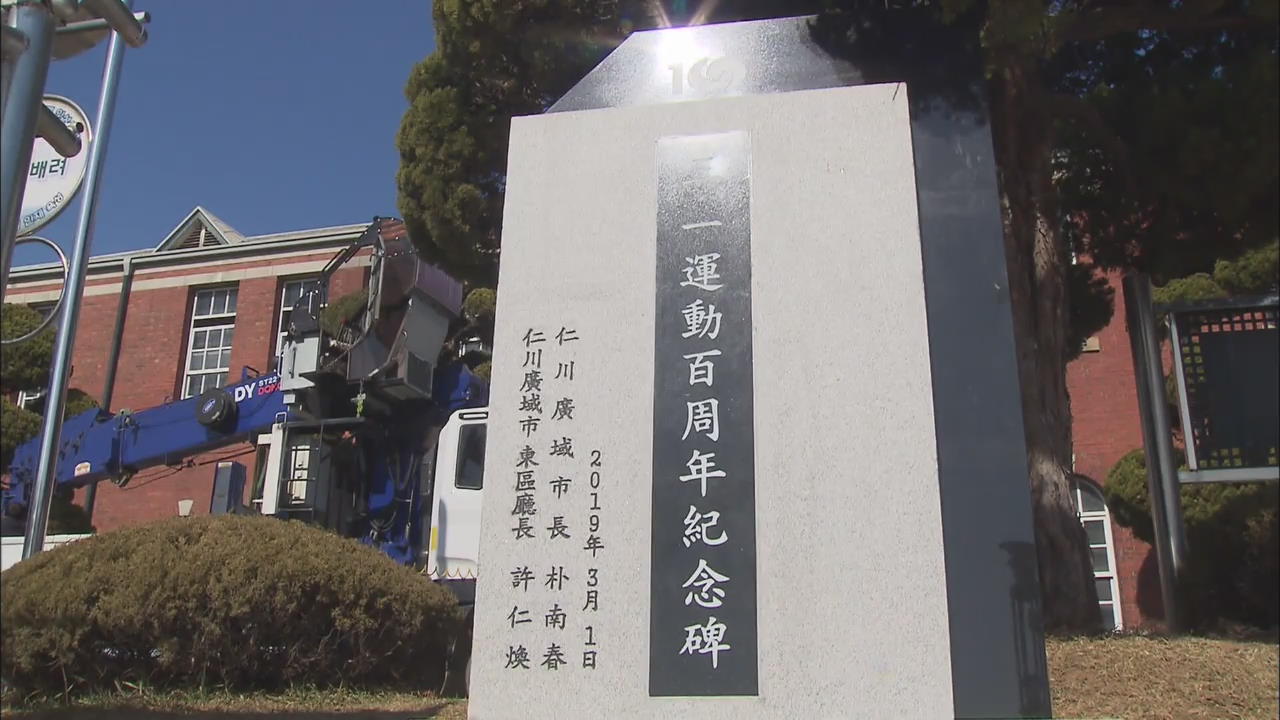
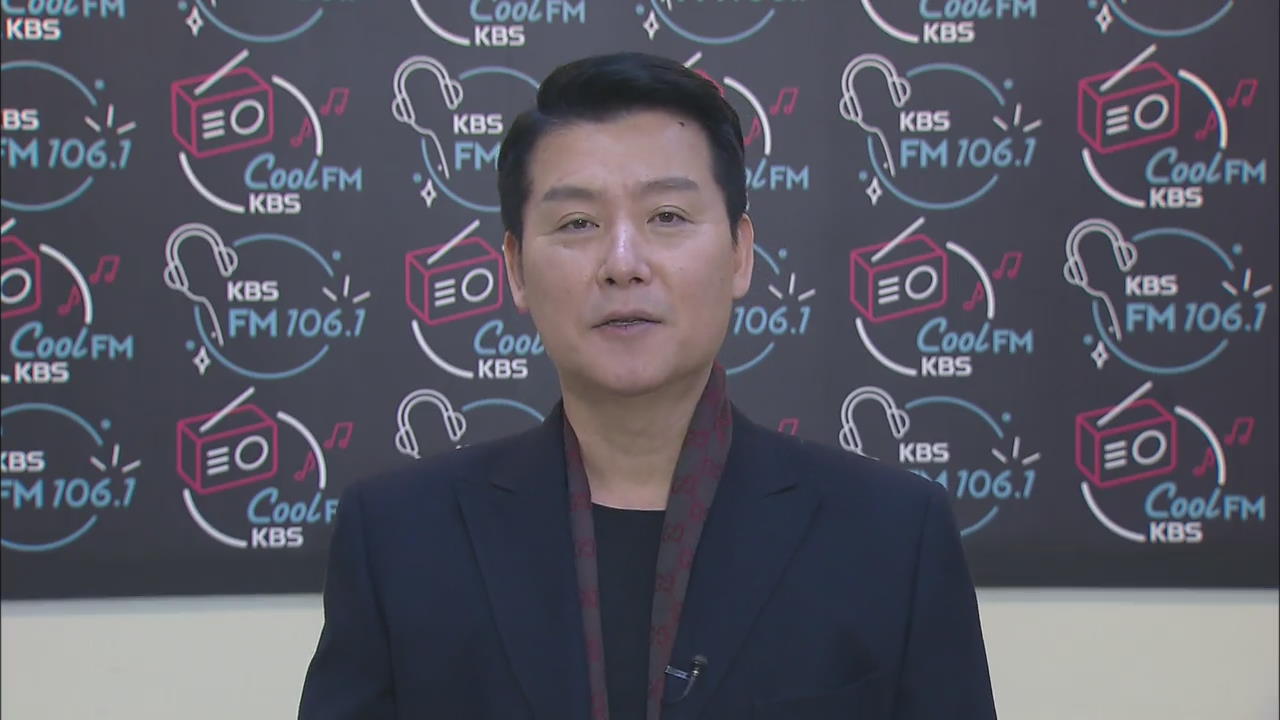
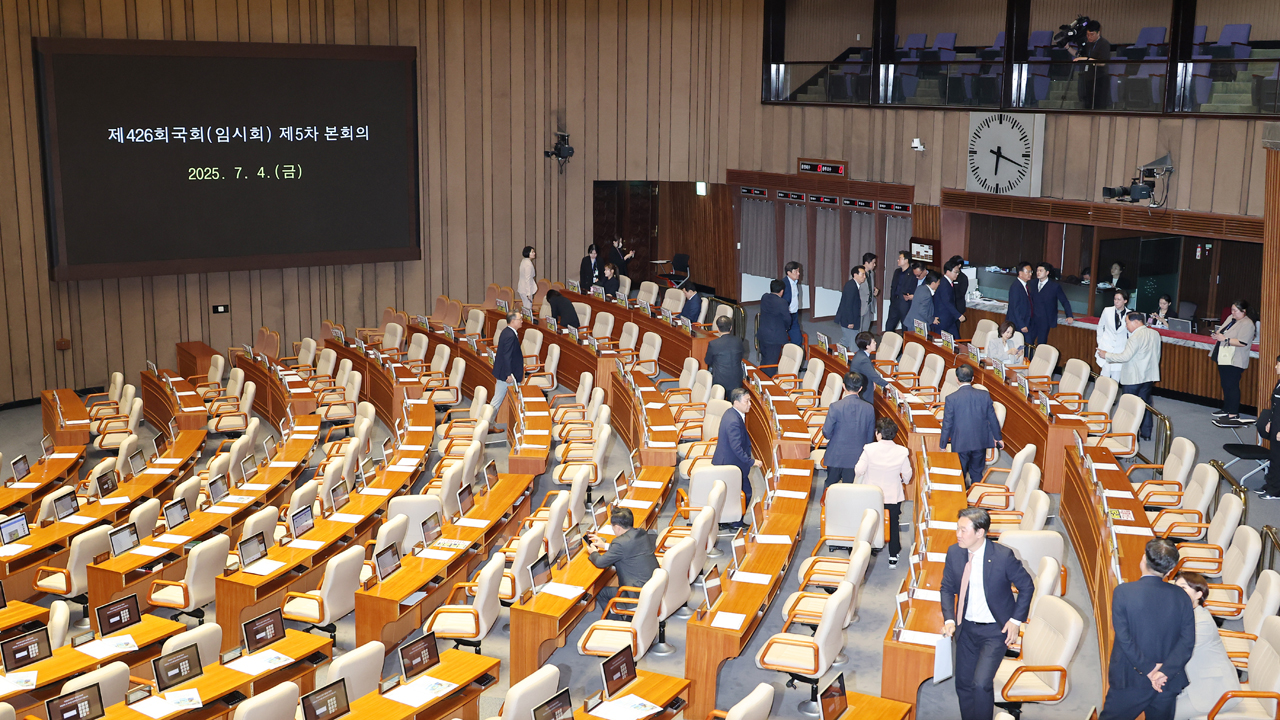
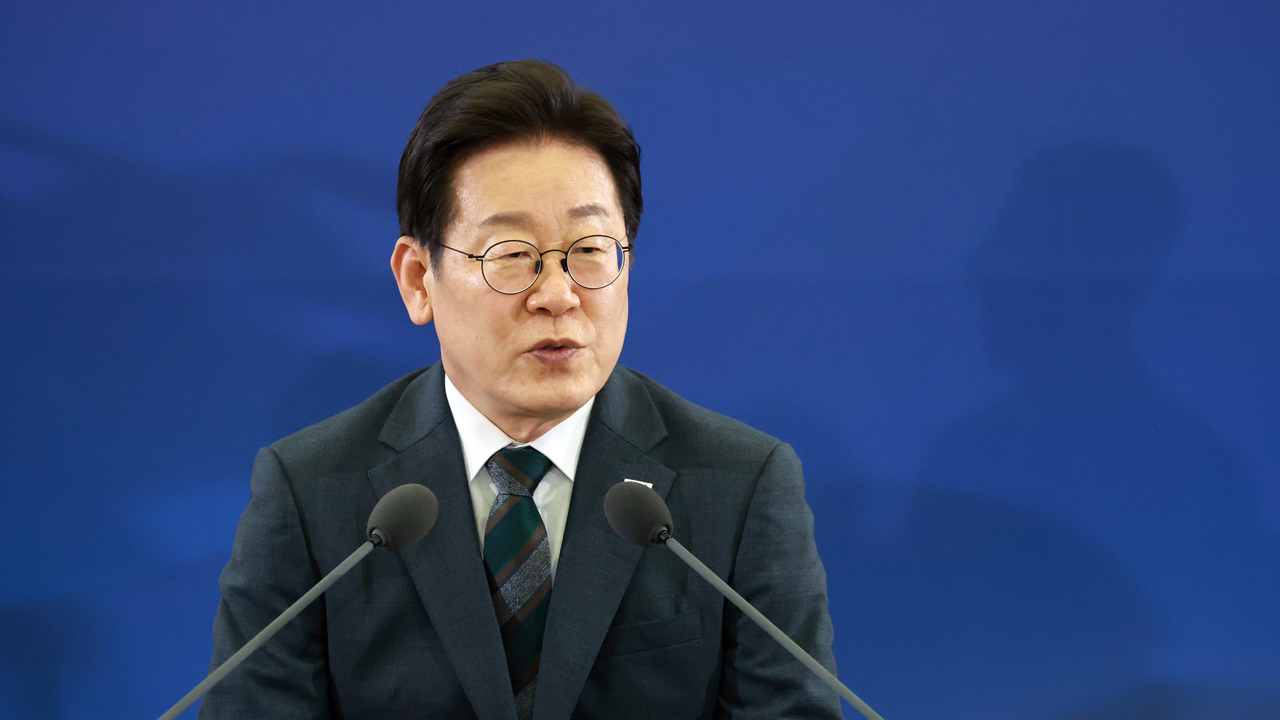
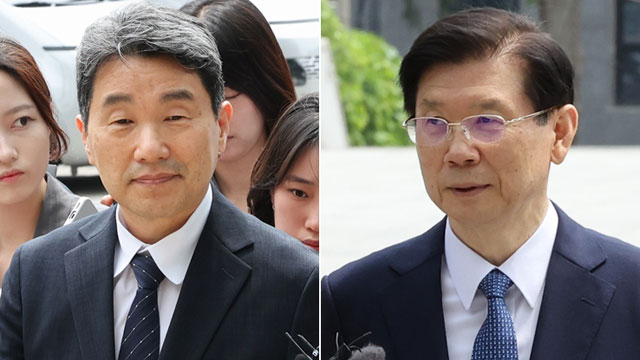


이 기사에 대한 의견을 남겨주세요.